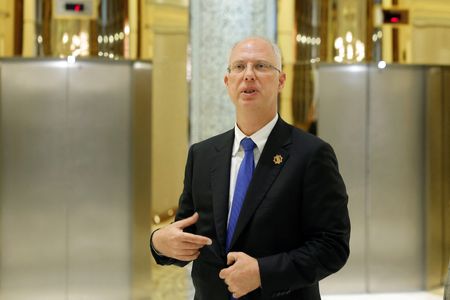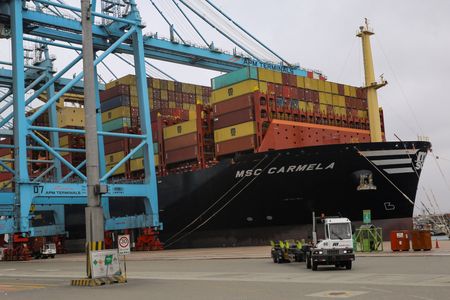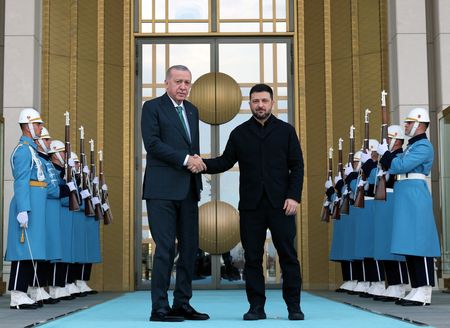By Guy Faulconbridge and Gleb Bryanski
MOSCOW/RIYADH (Reuters) – Russia’s sovereign wealth fund expects a number of U.S. companies to return to Russia as early as the second quarter of 2025, its chief said after the highest-level U.S.-Russian meeting since the Ukraine war began.
When President Vladimir Putin sent thousands of troops into Ukraine in 2022, many Western companies, including McDonald’s and Caterpillar, left Russia and some took hefty writedowns while selling their assets at steep discounts.
U.S. President Donald Trump has upended Western policy on Russia and Ukraine, ordering talks with Russia without Ukraine or European powers and talking about bringing down the price of oil – of which Russia is a major exporter.
The Russian Direct Investment Fund “expects a number of American companies to return to the Russian market in the second quarter of 2025,” chief Kirill Dmitriev told Reuters.
“But the return process for American companies will not be easy, as many niches are already taken,” said Dmitriev, a 49-year-old former investment banker who studied at Harvard and Stanford in the 1990s.
After the West slapped the toughest ever sanctions imposed on a major economy, Russia moved swiftly to get around restrictions and domestic producers snapped up market share previously taken by some big international companies.
Dmitriev spoke after meetings he had in Saudi Arabia with U.S. officials including Secretary of State Marco Rubio, U.S. national security adviser Mike Waltz and Middle East envoy Steve Witkoff.
Dmitriev was not present at the political section of the meeting in Riyadh as Foreign Minister Sergei Lavrov and Kremlin foreign policy adviser Yuri Ushakov sat down with the U.S. officials but led the Russian side on the economic section of the meeting of the two delegations.
Trump, who has repeatedly stated he will end the war in Ukraine, said he might meet Putin this month and dismissed Ukraine’s concern about being left out of the talks in Saudi Arabia.
‘$324 BILLION LOSS’
With the U.S. and Russia speaking again after what officials said was the biggest crisis in relations since the 1962 Cuban missile crisis, some in Russia hope that economic ties will also be resumed.
According to Dmitriev, who has worked at the U.S. firms Goldman Sachs and McKinsey, U.S. companies have lost $324 billion by moving out of Russia – which has the world’s biggest reserves of natural resources.
Dmitriev showed Reuters calculations which had U.S. IT & Media losing $123 billion, Consumer & Healthcare losing $94 billion and Finance losing $71 billion.
“Lots of assets were sold at basically, very cheap valuations, a huge discount,” Dmitriev told Reuters on Tuesday in Riyadh.
Western companies have acknowledged losses totalling $107 billion in writedowns and lost revenues, according to a Reuters analysis in March 2024. Ukraine said that any companies that did not leave Russia were supporting the Russian war effort.
Dmitriev said he believed U.S. oil majors that had “very successful business in Russia” would “at some point” return.
“Why would they forgo these opportunities that Russia gave them to have access to Russian natural resources?”
Former U.S. President Joe Biden said he wanted to “squeeze” Russia’s economy, though Russia grew faster than either the United States or the European Union in 2023 and 2024.
Trump has repeatedly said that he wants oil prices to be lower and to do that he would need help from Saudi Arabia and Russia, the world’s two biggest oil exporters.
The talks in Riyadh yielded agreement from the U.S. and Russia to form negotiating teams for future meetings and work to restore the normal functioning of each other’s diplomatic missions.
(Additional reporting by Alexander Marrow; Editing by Guy Faulconbridge, Lincoln Feast, Philippa Fletcher, Alexandra Hudson)











